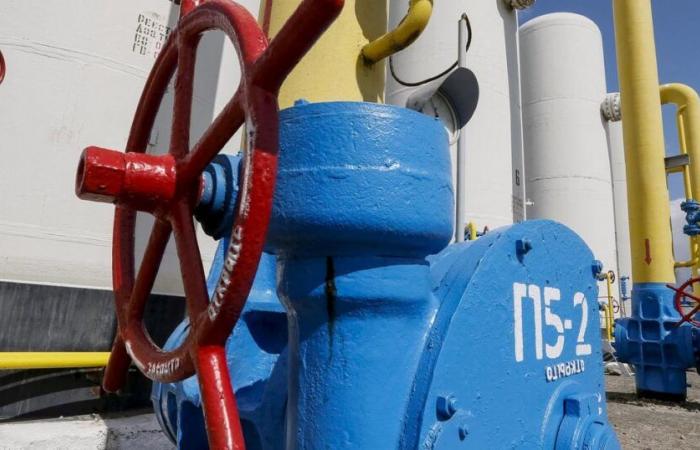“The immediate effects are slight, but the strategic and symbolic impact for the whole of Europe is enormous”strikes the BBC. Exports of Russian gas transiting through Ukraine ceased on 1is January 2025, marking the end of Russian domination of the European energy market.
The sanctions that have targeted Russia since the start of the war in Ukraine in February 2022 have not prevented Russian gas from reaching Western Europe for almost three years. But the flow was interrupted after kyiv “refused to renew an agreement that allowed the transit of Russian gas through its territory”explains New York Times.
The gas pipeline passing through Ukraine carried “Soviet then Russian gas to Europe for almost sixty years”recalls the American daily.
Its closure is “a historic event”welcomed Ukrainian Energy Minister Herman Halushchenko:
Russia is losing markets and will suffer financial losses.
The decision to suspend the delivery of Russian gas “is part of a broader campaign by Ukraine and its Western allies to undermine Moscow’s ability to finance its war effort and limit the Kremlin’s ability to use energy as leverage in Europe”also observes the New York Times.
This stop had been widely anticipated by the European authorities and, according to experts, it should not have a significant impact on the prices paid by European consumers, unlike in 2022 when the drop in Russian gas deliveries caused significant tensions on the supply front.
In Brussels, the European Commission prides itself on having anticipated the end of Russian gas deliveries. “European gas infrastructure is flexible enough to supply gas that does not originate in Russia”said a spokesperson for the European executive. “It was enhanced by new LNG (liquefied natural gas) capacities.”
However, in the east of the EU, a number of Member States “still largely dependent on Russian supplies”, underlines the BBC. Continuing deliveries brought Moscow around 5 billion euros per year. According to the British media, Russian gas represented less than 10% of EU gas imports in 2023, while this figure was 40% in 2021.
Countries such as Slovakia, Hungary and Austria continued to import significant quantities of Russian gas. Austria’s energy regulator said it did not expect any disruptions as it had diversified its sources and built up reserves.
But Budapest will continue to obtain supplies from Russia by transporting Russian gas through TurkStream, which operates two gas pipelines crossing the Black Sea. And as observed by BBCthe end of the transit agreement has already caused serious tensions with Slovakia, “which collected transit fees by transporting gas to Austria, Hungary and Italy”.
Slovak Prime Minister Robert Fico said on Wednesday that ending the deal would have consequences “dramatic” for EU countries, but not for Russia. Friday, December 27, when he had just made a surprise visit to Moscow to meet with Vladimir Putin, Fico threatened to stop supplying electricity to Ukraine.
And this 1is January, in Transnistria, a Moldovan region subservient to Moscow, heating and the supply of hot water were cut off due to lack of supplies.






